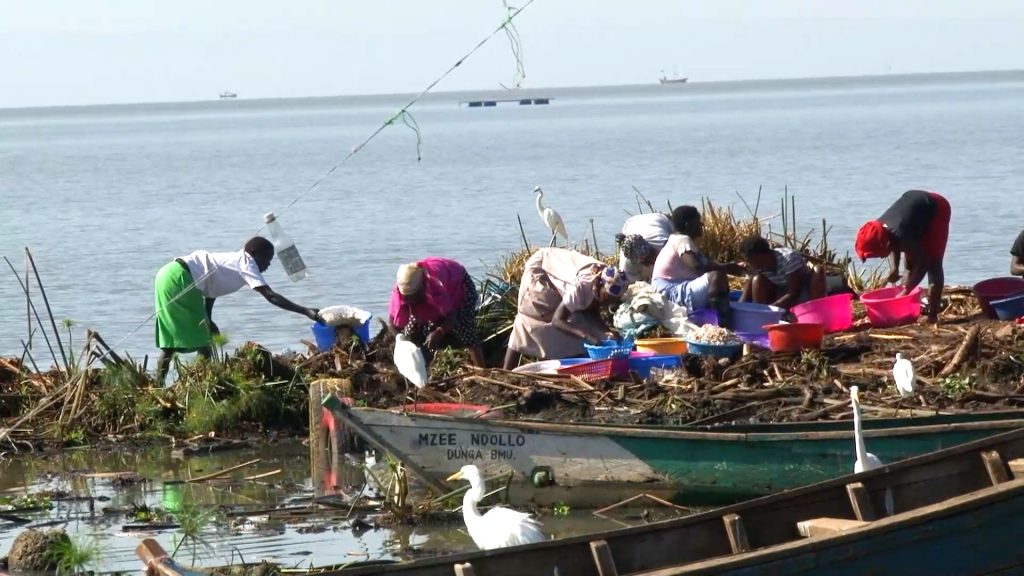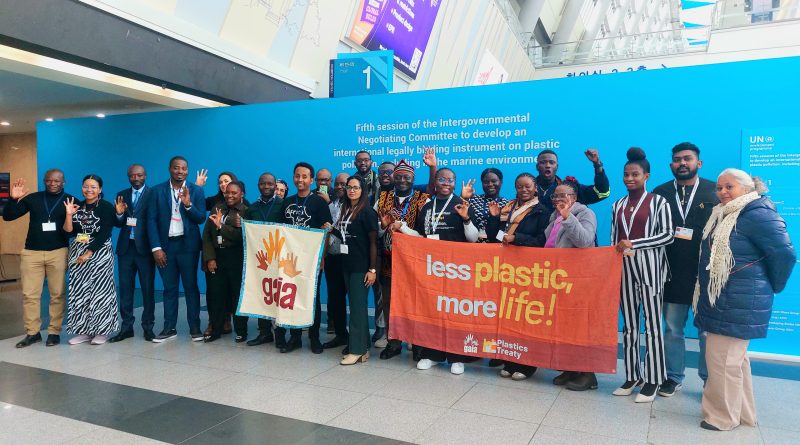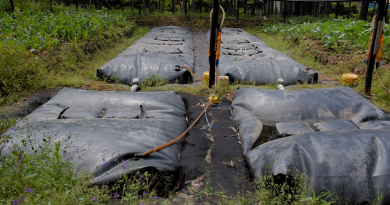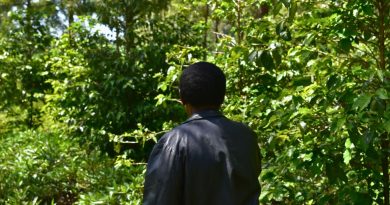African Civil Society Unites for Ambitious Global Plastics Treaty

By Carolyne Tomno
Dorothy Otieno a Program Officer, at Centre for Environment Justice and Development CEJAD Kenya,has called for the urgent need for a robust Global Plastics Treaty, citing research in Africa that has revealed toxic chemicals in children’s toys and the food chain.
As a net importer of plastics, Africa stands to significantly benefit from the elimination of these harmful chemicals. This critical issue, among others, is driving the mobilization of African civil society organizations (CSOs) as they prepare for the resumed fifth session of the Intergovernmental Negotiating Committee (INC-5.2) on the Global Plastics Treaty this August.
Ahead of the crucial negotiations, GAIA Africa hosted an online media briefing for African journalists, emphasizing their vital role in amplifying the call for a strong and legally binding treaty.
Africa has been a driving force in the Global Plastics Treaty negotiations, beginning with the landmark AMCEN Decision 19/2. This decision, adopted by African ministers, solidified the African Group of Negotiators’ (AGN) common position, a commitment to a legally binding global treaty addressing plastic pollution across its entire lifecycle—from production to disposal—while safeguarding human health and the environment.
This unity has garnered global recognition and respect for the continent’s leadership on the international stage.
Merrisa Naidoo, GAIA Africa’s Plastics Program Manager and a key coordinator of the region’s engagement, provided a timely update on the treaty’s progress.
She stressed that despite clear scientific evidence and strong global support for a bold treaty, progress is being hampered by a lack of political will. “Now, more than ever, we need courageous leadership,” Naidoo asserted. “We have the evidence. We have the momentum. What we’re missing is the commitment to act.”She added.
African Priorities for a Just Treaty
Civil society members from across Africa, actively advocating for a strong Global Plastics Treaty, shared their expectations for the upcoming negotiations. Drawing on diverse backgrounds and lived experiences, speakers from South Africa, Ethiopia, Ghana, Egypt, Nigeria, and Kenya highlighted critical issues:
Elimination of Toxic Chemicals
Rico Euripidou of groundWork in South Africa underscored the alarming presence of 16,000 chemicals in plastics, stressing the need for the treaty to eliminate the most harmful ones.
Addressing Production at the Source:
Eskedar Awgichew of EcoJustice Ethiopia highlighted the growing surge in petrochemical infrastructure linked to plastic production in his country and the serious gap in environmental oversight and public health protection for local communities. Mohamed Kamal of the Greenish Foundation, Egypt, emphasized that waste management alone is insufficient and the problem must be tackled at its source: production.
Robust and Equitable Financial Mechanism
Jacob Johnson Attakpah from GAYO Ghana stressed the urgent need for the Plastics Treaty to establish a dedicated Multilateral Fund (MLF) to support effective implementation across the continent, especially given the substantial debt burden many African countries face.
Transparent Decision-Making and Human Rights
Nadine Wahab of Sustainable Network Egypt powerfully called for effective, inclusive, and transparent decision-making to restore trust in multilateralism and avoid the pitfalls seen in other environmental negotiations. Sarah Onuoha of SRADeV Nigeria highlighted the critical human rights impacts of plastic pollution, emphasizing the role of journalists in advocating for environmental justice and promoting solutions that alleviate poverty.




